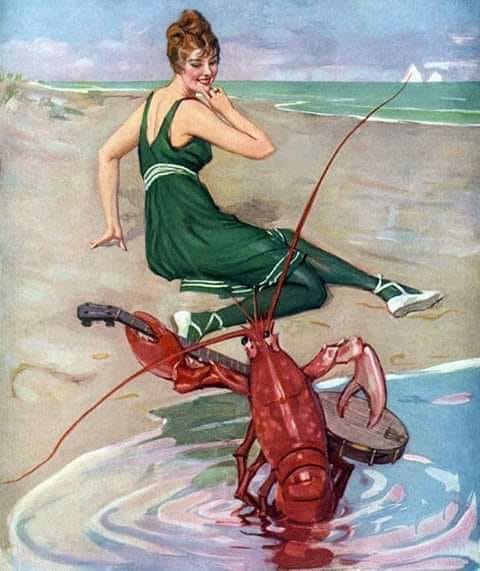I just got reminded of this readthrough that I abandoned 3 years ago, because I got distracted which is half the story of my life, and also got told off for giving Jordan Petersen airtime and not paying enough attention to the additional context around his work which made it morally reprehensible, which is also the story of my life. Since then he’s published another book and also become addicted to diazepam which apparently could only be dealt with by going to Russia to be put into a medically induced coma.
This confused me as I’ve been on and off diazepam for about a decade now, with no real problems and definitely no Russian coma (and why Russia? Are there no comas in Canada? I understand I could probably find out but having utterly failed to google this shit through the entire rest of my read through, I’m not starting now) but was apparently a very big thing. This review is almost certainly totally out of date but…eh. I started. So I ought to finish.
Jordan Petersen – 12 Rules For Life.
Rule 9 – be precise in your speech.
- Hmmm….I am suspicious. Is this going to be a whole chapter subtitled ‘just tell me what exact words I said were sexist/transphobic/racist? No, don’t give me context. Just give me the words. Also, I didn’t say you should have cleaned the kitchen, Julia. I just said this kitchen was a total shithole and someone should have cleaned it, while looking straight at you. Listen to what I say, not what you think I said?”
- No, it’s OK, Jordan, I’ll give you the benefit of the doubt. Let’s read.
- Huh. It starts with a long ramble about laptops and the interconnectedness of things.
- QUOTE – “Your laptop is a note in a symphony currently being played by an orchestra of incalculable size”.
- OK. He just made a good point about the extent to which our society – our ability to have things like laptops, the internet and electricity to power it is based on a interdependent and invisible system of trust.
- Right. Sudden leap to ‘we see the whole world as manifestations of this system’ which is…yes. I think it does follow. A laptop is not just a box. We know that immediately and so recognise it for its utility – as a communication tool. A chair is not just a lump of wood – we recognise it as something we can sit on. Chairs don’t need complex structures to exist, but I think I still follow the leap from ‘it’s all about systems’ to ‘objects as entities shaped by their use’.
- Also, coincidentally, a topic I’ve written a load about when arguing that objects like fans or paddle steamers (to use two apparently disparate examples) should be kept in use as long as possible because it’s in their movement that they really exist.
- Yes, I can take questions on that later.
- Oooh…now moving on to people. But now he’s pulling in and focusing on the bits we see of people – not their networks, or their past, or their internal context or experiences. Just them and in that precise moment because that is how they relate to use – how they are useful. The face communicates and lets us connect and cooperate with them in that moment.
- We deal with people this way because otherwise we’d collapse in the complexity of the world.
- Huh. I think this is a part of Jez’s training program for chuggers – he teaches them to never take anything anyone says to them on the street personally because you don’t know where they are coming from, what they are feeling, what their day is. You get a moment in time but it’s only the tip of the iceberg and often the words you get from them don’t really related to you at all, but are the result of a dozen complex social interactions that you don’t and can’t understand. I don’t know if this is where Petersen is going, but I do recognise the theory.
- Some interesting stuff about how we extend our sense of self into the interconnected networks – how we identify with our sports team or our country.
- Going back to the complex social relationships – because the world is all so complex we take corners of them, see them for how they work/how they can be used, and then rely on those simple explanations to make sense of the world. If these assumptions cease to make sense, then chaos ensues and everything goes wrong.
- Huh. I think I understand now why Petersen is so threatened by trans people. He really doesn’t like change and he super duper hates change he doesn’t understand/which shifts the boundaries of reality as he understands it.
- Suddenly 9/11 reference. And then….watery formless chaos and the ineffable Word of God. Holy fuck, that escalated quickly.
- QUOTE – ‘what we perceive, when things fall apart, is no longer the stage and settings of habitable order. It’s the eternal watery tohu va bohu, formless emptiness, and the tehom, the abyss…the chaos forever lurking…it’s from that chaos that the Holy Word of God Himself extracted order and the beginning of time, according to the oldest opinions expressed by mankind (and it is in the image that same Word that we were made, male and female, according to the same opinions.)
- Goodness.
- And this means that when change happens, when we feel betrayed, by something as mundane as an unfaithful husband, we see the formless chaos, doubt god and go mad.
- I am beginning to see where the diazepam addiction and Russian coma came from. Also, Jordan, should you really have been so judgy about the patients in the psych ward earlier?
- Holy crap this is weird stuff. Now he’s referring to the betrayed wife seeing only ‘the shell of her former husband’ as she is cast into ‘the underworld with all its terrors’.
- I don’t think this is a universal response to change, Jordan. I’m just putting it out there. Have you talked about this with your therapist?
- But we take a sudden left turn. Maybe the way to avoid change is to acknowledge the dragons in our lives – that which is left unsaid – before they grow into giant dragons which eat us all and send us to the Underworld. This isn’t my analogy btw. This is Petersen’s. But what if what is left unsaid are experiences or identities which don’t fit with your social consistency and continuity, Jordan?
- OK, no, we’re focused on marriage guidance counselling again and how couples should talk more about their sex lives. I mean, yes, that’s reasonable.
- Now we’re talking about whether or not we take on the role of tyrant or slave in our lives. I’m afraid I’m about to hear the word ‘sheeple’.
- Man, this chapter flip flops rapidly between the sensible and the epic religious derangement.
- His exploration of what might go wrong in a marriage provides a terrifying insight into Jordan Petersen world. QUOTE ‘maybe she could not agree with him on the proper disciplinary approach to the children and shut him out of their lives in consequence. Maybe that allowed him to circumvent what he saw as an unpleasant responsibility’. So, kids, remember to make sure Dad has his role as Stern Disciplinarian or it all goes wrong and everyone goes mad and ends up in Hell. No, pretty much literally.
- Sudden apocalyptic Yeats poetry!
- OK. So, he says communication is important, even if it hurts, because that you have a sharp and specific hurt you can learn from instead of kindly meant lies which lead to a dull ache of hopelessness.
- More ominous poetry.
- To give structure we need speech and the right words. I mean, OK, fine, Jordan. That is mostly how I live my life, as readers of all my very wordy FB posts may be aware. Words give shape and structure.
- QUOTE “Precision specifies”. I’ve had this therapy session.
- If you hear a weird noise in the forest it might be a tiger. But it also might be a squirrel. Actually, pretty solid point.
- QUOTE “Be careful with what you tell yourself…search for the correct words. Organize those words…the past can be redeemed….the present can flow”
- We have now leapt back from strange romantic poet hallucinations of demons to stern dad solid advice, with a bit of additional bootstrapping about how once you’ve got the words to talk about your life you need to ‘pay attention, note your errors and strive to correct them’.
- And….we’re back to the big primordial spiritual soup. ‘Confront the chaos of Being’.
- OK. So, this chapter can be boiled down to ‘there was formless Chaos, and then there was GOD who gave us Order. If we move away from the Order there is only Chaos. Also, people should talk more and communicate their wants and needs. But really, it’s about Order,’
- An odd sandwich of a chapter. 50% solid. 50% the kind of thing I imagine being said by a cult leader as he beats his acolytes out back in the commune’s woodshed.
Will I manage the last two chapters? Wait and see!
 So, I’ve noticed lately that I’ve got involved in a number of conversations about when and how it’s appropriate to comment on what other people are eating, and the etiquette therein, and this morning I found myself briefly overcome with the urge to write a small etiquette guide on this front. I am related to someone with a “sir” in their name, after all, which means I absolutely am the totally best person to give this advice, in the face of no other qualifications whatsoever.
So, I’ve noticed lately that I’ve got involved in a number of conversations about when and how it’s appropriate to comment on what other people are eating, and the etiquette therein, and this morning I found myself briefly overcome with the urge to write a small etiquette guide on this front. I am related to someone with a “sir” in their name, after all, which means I absolutely am the totally best person to give this advice, in the face of no other qualifications whatsoever.